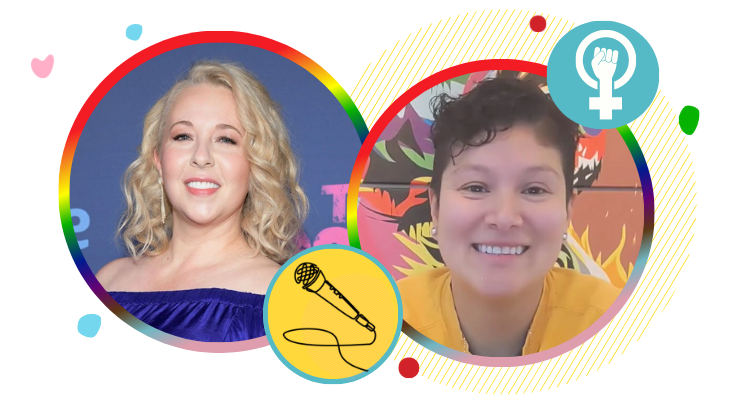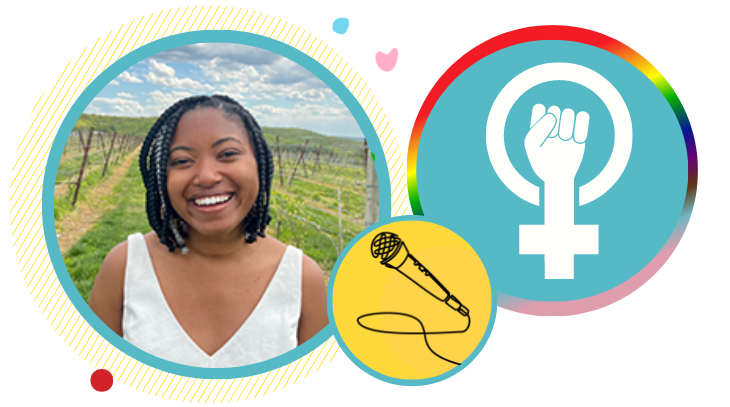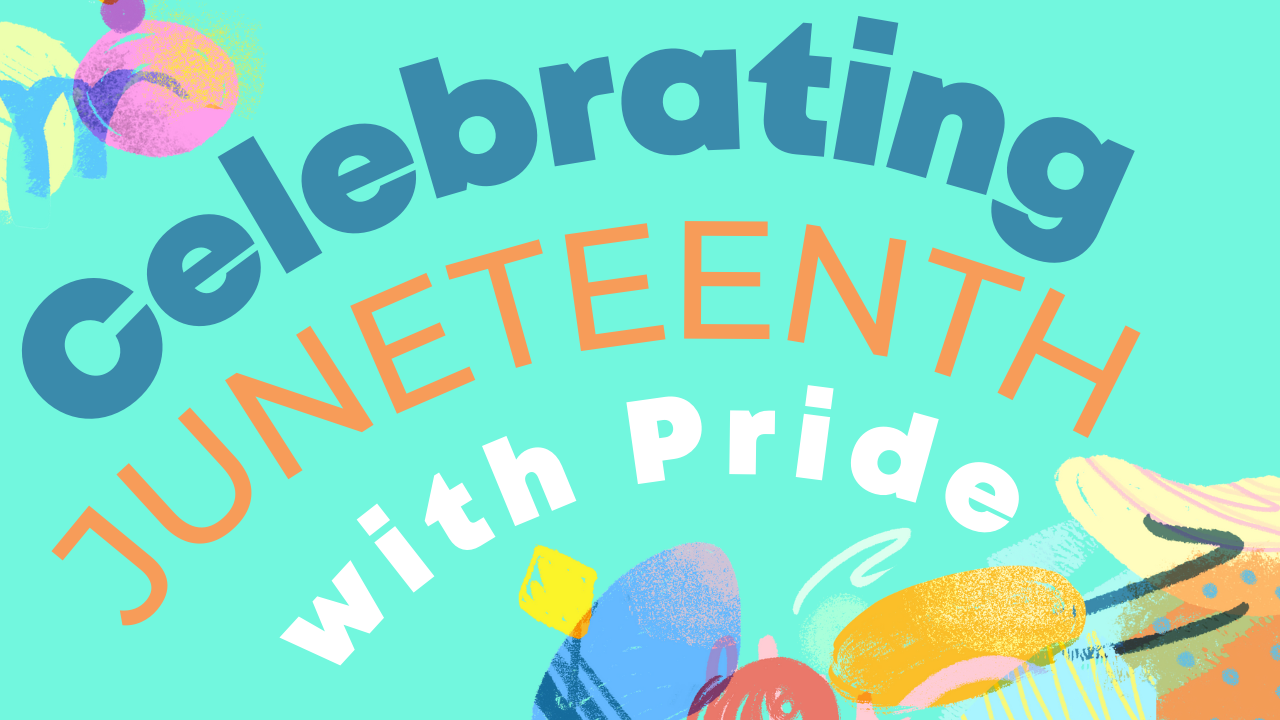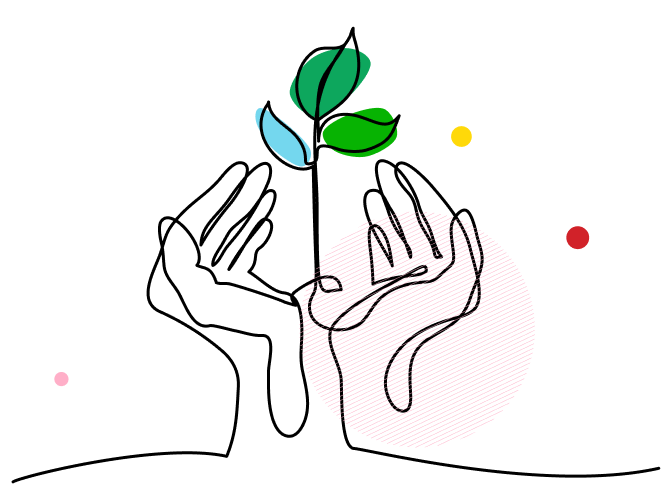LGBTQ+ Women and Media Representation

LGBTQ+ representation on US television is at an all-time high, according to a GLAAD study. In 2022, LGBTQ+ characters made up about 12% of all television characters and shows like Euphoria, The L Word: Generation Q, and A League of Their Own provided diverse casts of LGBTQ+ women. The 2021-2022 season marked the third year in a row in which there were more LGBTQ+ women characters than LGBTQ+ men characters on television.
The GLAAD study “Where We are on TV” documents how far LGBTQ+ representation has come. As professionals in the entertainment industry, Point Foundation Alumni Brennan Peters and Tiffany Barillas talk about what it was like to grow up without LGBTQ+ storylines on TV, and how much work is still needed to achieve equal representation on screen.
"You know I think it's important that we see and celebrate women (and femmes) in the LGBTQ+ community because they're people,” Brennan said. “We're people. We deserve to be seen and celebrated. It's really not more complicated than that.”
Reflecting on the lack of representation of LGBTQ+ women on television growing up, Brennan said she experienced alienation. Not seeing characters like herself on screen led her to question the validity of her own experiences.
“I just didn't see myself out there, in the world and it instills these questions: Is what I'm experiencing real? Am I crazy? Am I alone?” she said. “It's not a good feeling growing up and wondering whether what you're feeling and experiencing is valid. I think feeling that way as a kid really made me understand the importance of validation through representation and community through representation.”
As a Point Flagship Scholar, Brennan attended Loyola University New Orleans. She studied psychology and English with a film and digital media concentration. Her first feature, Perry & Emile, told the story of a young LGBTQ+ woman and mother taking care of her young son in post-Katrina New Orleans. Born and raised in the South, Brennan was uniquely qualified to tell this story. Since its premiere, she’s gone on to work on a series of other projects. Her most recent position was as a writer and producer for The Power, Amazon’s new television series featuring LGBTQ+ actress Auliʻi Cravalho. The Power premieres March 31 on Amazon Prime.
“The question isn't just on-screen representation, because there has been progress made there,” Brennan said "I still have a lot of questions and a lot of concern around who is being allowed to tell those stories. Who is being given the space and the voice to tell my story, you know, our stories, those stories. Because it is still predominantly not women. And it is still predominantly not queer women. And definitely predominantly not queer women of color. There's a lot of work to be done there and there's a lot of progress that needs to happen there.”
LGBTQ+ Women in Gaming
Point Alum Tiffany Barillas started her journey to becoming a storyteller in finance as the associate director of strategic finance for commercial partnerships at Riot Games. As a Point Scholar, Tiffany pursued an MBA at Columbia Business School. Before this, she studied business at UC Berkeley, where she came out her senior year. Tiffany was aware of her sexuality since childhood, but she was not out until she attended the Out for Undergrad Business Conference in 2010. This conference changed her life by shifting her perspective on how accepting her identity could be an advantage.
“I believe it's important to see and celebrate women (and femmes) in the LGBTQ+ community because growing up and growing into my career, I didn't see a lot of people I could identify with,” she said. “While there were a lot of women and some LGBTQ+ folks working in finance, there were very few queer women (and femmes), and even fewer that were Latina.”
Now, Tiffany is a part of a team that not only celebrates diversity but includes LGBTQ+ narratives in the video games they create.
“It would have been very powerful to see examples of what queer women could be like in society and in the workplace,” Tiffany said. “And by celebrating the community we can really show the next generation what their lives could look like and what their lives could be like.”
Tiffany said that this need to be validated and represented is a shared experience for many gamers. Most video game players are more diverse than people think, and many share the experience of feeling like an outsider.
“Gaming is not just your stereotypically young, white men playing shooting games,” she said. “Gamers as a community tend to be more diverse than the general population, with demographic data showing that gamers are almost 50% female-identifying, they're about 20% Latino, they're 16% LGBTQ+, and over 30% of them identify as having a disability.”
Tiffany said she is proud to work at a company that recognizes the diversity of the video game community. She’s excited to use her own identity and experiences to center queer characters like Raze and Killjoy in the videogame Valorant.
Storytelling for LGBTQ+ Women
This Women’s History Month, Point is joining the national theme of “Celebrating Women who Tell Our Stories.”
For Tiffany, stories are a way to combat bias.
“Study after study shows that exposure to new perspectives and shared experiences are the best ways to combat bias.” Tiffany said. “And even today, queer women are double, sometimes triple minorities, with very little representation in finance, in tech, in gaming, and in other industries. So, sharing our stories allows our allies, our coworkers, our communities to understand and to celebrate our experiences.”
Storytelling allows people outside of the LGBTQ+ community to see and celebrate LGBTQ+ women. For Brennan, Women’s History Month and the ongoing efforts to advance representation in the entertainment industry gives society a chance to better understand and sympathize with the different experiences people have.
“I think it's really difficult for people to empathize and connect with and invest in the wellbeing of people they never met, people whose experiences they don't understand,” Brennan said. “[Women’s History Month] is part of elevating their stories, centering their stories, putting a spotlight on their experiences, so that other people can engage and learn to understand and value their humanity, invest in their wellbeing. It's part of making the world a better, safer place for women (and femmes) in our community.”
Both Brennan and Tiffany are committed to expanding the LGBTQ+ stories shared in their respective fields. As a white, cisgender, queer woman, Brennan believes the first step in diversifying the stories we tell is acknowledging and understanding privilege. Brennan said that this gives her a chance to recognize when she should step back, and fight for the right for other LGBTQ+ women to share their own experiences.
“It is not my place to tell a trans woman of color what equality looks and feels like for her, or the actions that need to take place for her to get there, right?” she said. “It is my job to create space and to listen to her needs and concerns and desires. And then to leverage my privilege to implement change that she wants in the way that she wants.”
Point Alumni are creating a more equitable future for the next generation of LGBTQ+ women. As women who tell their stories, Brennan and Tiffany are creating the role models they wanted as young LGBTQ+ girls for the young people watching television and playing video games today.
Related Posts
March 10, 2023, Point Foundation

A Tradition of Black LGBTQ+ Women Creators
Although she is currently pursuing an MFA in Poetry at New York University, Point Foundation...
June 14, 2023, teampoint

Celebrating Juneteenth with Pride
What is Juneteenth? Juneteenth is an annual federal holiday commemorating the day on which enslaved...
April 19, 2023, teampoint

LGBTQ+ Students and Environmental Justice
Every year, Earth Day is a call to dedicate our time, resources, and energy to solving climate...